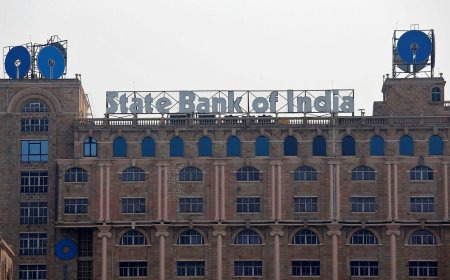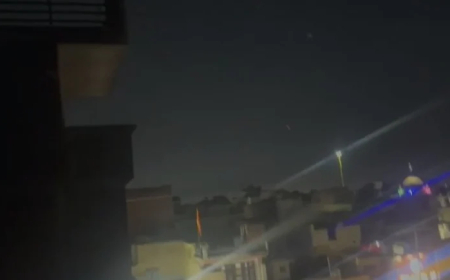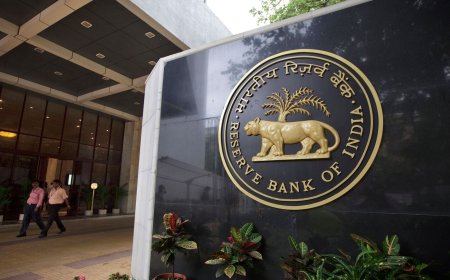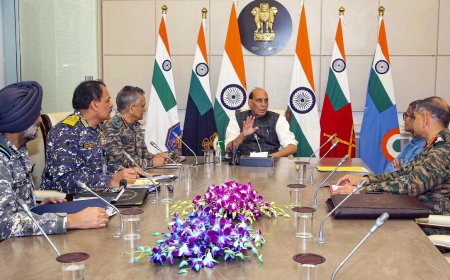Ayatollah Ali Khamenei says Donald Trump 'exaggerated' impact of US strikes on nuclear sites
Ayatollah Khamenei refutes Donald Trump’s claims of crippling US strikes on Iran’s nuclear program, calling them political exaggeration. Analysts, markets, and global powers weigh in.
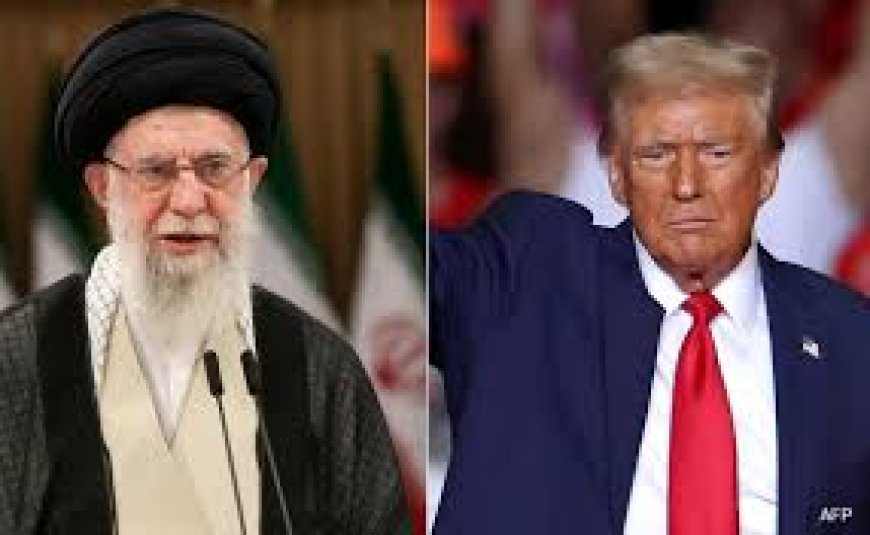
Tehran/Washington | June 26, 2025 — In a strongly worded address on Wednesday, Iran’s Supreme Leader Ayatollah Ali Khamenei dismissed former U.S. President Donald Trump’s claims about the effectiveness of American strikes on Iranian nuclear infrastructure, calling them "exaggerated" and a reflection of political bravado rather than reality.
Khamenei: “Trump is Playing to His Audience”
Speaking during a meeting with top Iranian officials and military commanders in Tehran, Khamenei addressed recent comments by Trump in which the former U.S. president boasted about the impact of U.S. military operations on Iranian nuclear sites, specifically alluding to “crippling blows” dealt to Tehran’s uranium enrichment facilities.
“Trump has always lived in a bubble of self-congratulatory delusions,” Khamenei said. “His latest remarks are no different. The nuclear program of the Islamic Republic remains intact and progressing. What he calls 'crippling strikes' were minor inconveniences at best.”
This statement comes amid rising geopolitical tensions in the Middle East and increased scrutiny over Iran’s nuclear ambitions following a series of covert strikes—allegedly carried out with Israeli support—on facilities in Isfahan and Natanz earlier this year.
Trump’s Bold Claim and Its Fallout
During a campaign rally in Arizona earlier this week, Trump claimed, “We hit their nuclear sites harder than anyone imagined. Iran has been set back at least a decade.” The remark triggered a flurry of reactions globally, with both allies and critics demanding clarity on the legality, effectiveness, and broader repercussions of such operations.
While the Pentagon has not confirmed any large-scale strikes under Trump’s direct command beyond cyber operations like "Nitro Zeus" and the assassination of Quds Force Commander Qassem Soleimani in 2020, intelligence officials have acknowledged a series of “strategic disruptions” to Iran's nuclear supply chain.
Analysts Weigh In
Security analysts are divided over the true extent of damage inflicted by covert U.S.-Israeli operations.
“Trump’s statements are clearly inflated for political gain, but it’s also true that several key centrifuge assemblies were rendered inoperable,” said Matthew Whitaker, Senior Fellow at the Atlantic Council. “However, Iran’s nuclear expertise isn’t easily erased. They have knowledge, resources, and the will to rebuild.”
Dr. Sanam Vakil, an Iran specialist at Chatham House, added, “Khamenei’s remarks are also part of a domestic narrative to project strength. This war of words is less about facts and more about political posturing ahead of Iran’s elections and Trump's campaign trail.”
Market Context and Strategic Implications
The escalating rhetoric has unnerved global oil markets. Brent crude rose 1.8% to $88.50 per barrel following Khamenei’s speech, reflecting investor anxiety over renewed instability in the Gulf. Analysts warn that further verbal or kinetic escalation could threaten shipping routes through the Strait of Hormuz, through which nearly 20% of global oil passes.
The defense sector also saw modest gains. Northrop Grumman and Raytheon Technologies saw stock upticks of 2.1% and 1.7%, respectively, on speculation of heightened regional defense spending.
Tehran’s Nuclear Ambitions: Unbowed
Despite setbacks, the International Atomic Energy Agency (IAEA) last month reported that Iran had resumed enrichment activities at near weapons-grade levels—up to 60% purity—raising international concern. Tehran continues to insist that its nuclear program is peaceful and aimed solely at energy production and medical use.
Khamenei’s speech also underscored Iran’s pivot eastward, citing ongoing nuclear and trade cooperation with Russia and China. “The U.S. cannot isolate us when we are strengthening alliances beyond its reach,” he said.
Investor Outlook: Caution Ahead
Investors are advised to tread carefully amid increasing geopolitical noise. Emerging market funds with exposure to Middle Eastern assets may face short-term volatility, while defense, energy, and cybersecurity sectors could benefit from heightened tensions.
“Geopolitical risks are back on the table,” noted Anjali Rao, Chief Global Strategist at RDX Securities. “While markets may shrug off the rhetoric in the short term, an actual conflict or increased sanctions could prompt sharp corrections, especially in energy-dependent sectors.”
Khamenei’s sharp rebuttal of Trump’s claims reveals not only the persisting ideological divide between Tehran and Washington but also the high-stakes game of optics each side is playing. With elections looming in both nations—Trump in the U.S. and a new president due in Iran—rhetoric may only intensify.
Yet, beneath the fiery exchanges lies a fragile balance, where misinformation and bravado could have real-world consequences. As Iran pushes forward with its nuclear program and the U.S. re-evaluates its Middle East posture, the world watches closely, aware that a single miscalculation could spiral into a crisis.
What's Your Reaction?
 Like
0
Like
0
 Dislike
0
Dislike
0
 Love
0
Love
0
 Funny
0
Funny
0
 Angry
0
Angry
0
 Sad
0
Sad
0
 Wow
0
Wow
0





























































